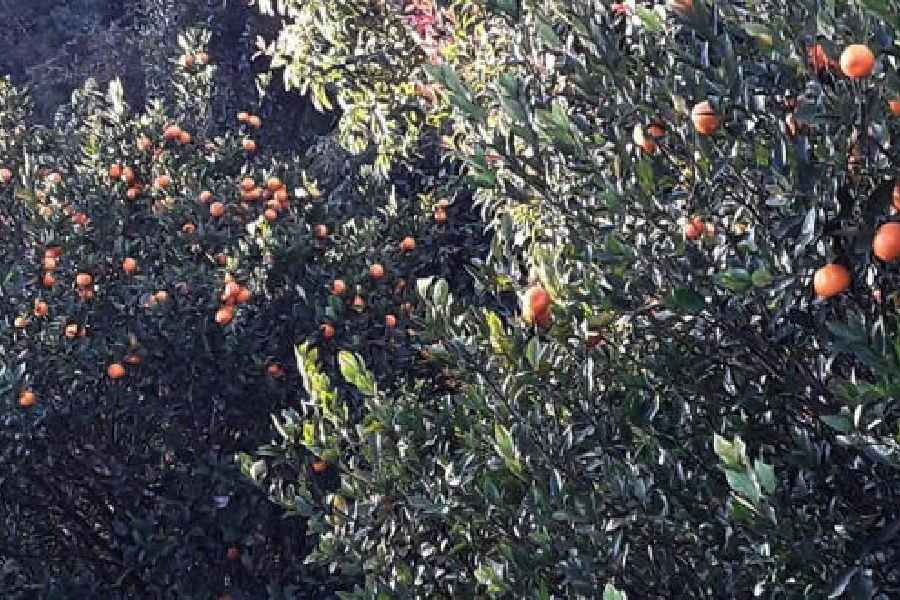Catch them if you can.
The Directorate of Cinchona and Other Medicinal Plants in Darjeeling has decided to award a cash reward for every truck borer — an insect that destroys orange trees — that is caught.
The award for catching a male truck borer is Rs 30 per insect. The award is higher for every female insect caught — Rs 50 per catch.
Dr Samuel Rai, the director of the directorate, said that they have decided to wage an all-out battle to save the famous Darjeeling oranges.
“The cash award has been initiated to combat trunk borer in a multi-prong effort to revive the orange orchards of Darjeeling,” said Rai.
Trunk borer is one of the primary causes of the decline in the citrus trees in the hills.
Darjeeling is known for its oranges, which although smaller in size than the Nagpur varieties, are considered superior in taste.
However, orange production in the hills is on a decline over the past decade. It is estimated that the annual production of oranges has come down to 29 metric tons from its peak of 52 metric tonnes over the years.
Oranges are grown over an estimated area of 4,150 hectares in the hills.
Alarmed by the situation, the state government and the Gorkhaland Territorial Administration (GTA) started an initiative called “Mission Suntala (orange in Nepali)” to revive oranges in the hills.
The initiative is being implemented by the cinchona directorate in the hills.
The insect award initiative falls under the mission.
Those residing in and around Mungpoo, the headquarters of the directorate, about 30 kilometres from Darjeeling, can physically come with the catch to the office, show the insects they have collected and claim their commensurate award.
“Those who stay afar must make a video call to provide evidence of them having caught and destroyed the insects. We will immediately transfer the amount online,’ said Rai.
Trunk borer is not the only reason for the decline in orange production. The orchards in the hills are also infected by citrus tristeza virus, greening (fungal infections) and attacks by fruit flies.
“Apart from encouraging farmers to completely eliminate truck borers, we are also taking other initiatives to eliminate threats to orange trees,” said Rai.
This includes coming out with a manual directing farmers on how to take care of the orange trees every month from January to December. Farmers are also being taught the nitty-gritty to prepare insecticides and plant grafts.
“A team of 18 members was also sent to Maharashtra for an exposure tour,” said Rai. “They learnt many things about best cultivation practices.”
Plans are underway to distribute around 5 lakh seedlings and orange grafts.
The directorate is also conducting a survey to understand the problems on the ground.
“We have also made a mobile app where farmers can give their feedback and also answer our queries. We are also coming up with QR codes for every farmer to access their crop details,” said Rai.
Officials are also visiting farmers who cannot operate mobile apps with a set of around 150 questionnaires.
“We are also in touch with experts from across the world and exchanging ideas on best practices,” said Rai.

